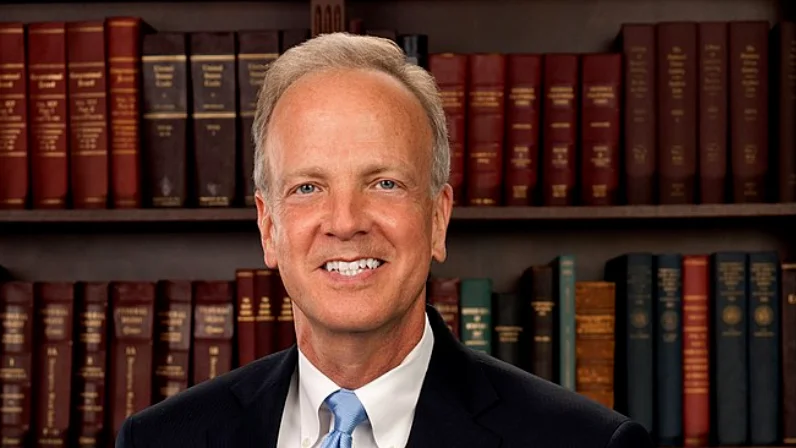Sen. Jerry Moran, US Senator for Kansas | Official U.S. Senate headshot
Sen. Jerry Moran, US Senator for Kansas | Official U.S. Senate headshot
Millions of Americans provide unpaid care to military veterans, often facing significant financial and personal challenges as a result. According to Sen. Jerry Moran, senior U.S. senator from Kansas and chairman of the U.S. Senate Committee on Veterans’ Affairs, and Steve Schwab, CEO of the Elizabeth Dole Foundation, about 14.3 million people in the United States voluntarily care for loved ones who have served in the military.
These caregivers manage tasks such as medication administration, treatments, appointments, daily living activities, and mental health support for veterans. Research indicates that veterans who remain at home under such care experience better outcomes. Additionally, these caregivers contribute an estimated $400 billion in unpaid services annually—a sum that would otherwise impact taxpayers.
However, caregiving can force individuals to leave their careers and lose income opportunities, professional licenses, retirement savings, and future job prospects. “Assisting veteran caregivers is in the best interest of servicemembers, veterans and our nation,” Moran and Schwab stated.
Congress is currently considering the bipartisan Veteran Caregiver Reeducation, Reemployment, and Retirement Act. This legislation aims to help caregivers regain financial independence by requiring the Department of Veterans Affairs to reimburse certain professional certification and re-licensure fees for caregivers. It would also give them access to federal employment assistance programs while extending health coverage and bereavement counseling services. The bill calls for a review of whether individual retirement savings plans could be established for caregivers.
Financial hardship remains common among this group: one-third of military and veteran caregiving families live at or below the federal poverty line; food insecurity affects 40 percent of those caring for veterans aged 60 or younger; two-thirds struggle with paying bills.
A program launched by Congress in 2012 provides monthly stipends through the Department of Veterans Affairs to caregivers supporting veterans with complex needs. However, these stipends are not considered earned income for Social Security or retirement plans—meaning they do not help build long-term financial security—and end soon after caregiving responsibilities conclude.
Andrea Sawyer’s experience highlights these issues. As advocacy director at the Quality Life Foundation and a former caregiver herself, she left her teaching career nearly two decades ago to care for her husband after his Army service led to severe PTSD and a traumatic brain injury. “When Sawyer left caregiving in 2021, it would have cost thousands of dollars to renew these licenses if she chose to return to the classroom,” according to Moran and Schwab. At age 48, Sawyer had lost years contributing toward retirement benefits or Social Security due to her time away from work.
Shawn Lopez faced similar difficulties when he became his father’s primary caregiver following a stroke linked to military toxic exposure. After six years providing round-the-clock support—including managing hospital visits—Lopez was left without income when his VA stipend ended upon his father’s death.
Moran and Schwab argue that stories like those of Sawyer and Lopez demonstrate why Congress should pass new legislation: “We cannot ask caregivers to dedicate their lives to this service, while providing billions of dollars of care, only to turn our backs on them when they need support the most.”
They conclude by urging prompt action: “Considering the sacrifices that military and veteran caregivers have made for those who have served, we must not wait to act and pass this critical legislation.”




 Alerts Sign-up
Alerts Sign-up